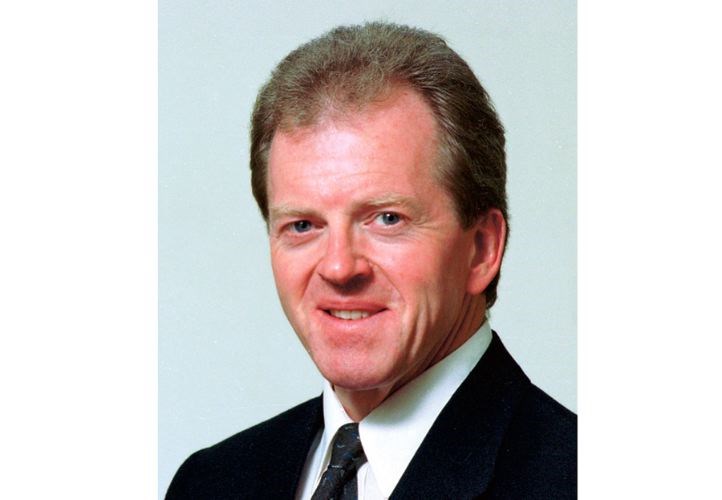The provincial capital would never be mistaken for a hotbed of enthusiasm for the B.C. Liberals, the party having lost its only seats in the region in the last election.
Still, more than 900 supporters packed the main hall at the Victoria convention centre this week for a $125-a-plate fundraiser that grossed more than $100,000 for the governing party.
Batting cleanup for the evening were the only two Liberal MLAs on Vancouver Island, both representing seats well to the north of the capital.
Comox MLA Don McRae had one of the better laugh lines of the night, when he quipped that the Liberals' Island caucus, though tiny, is perfectly gender balanced. Michelle Stilwell, MLA for Parksville-Qualicum, Minister for Social Development and a Paralympian, topped that by noting that the caucus also has "four Olympic medals," all of them being hers, of course.
The main event was the premier herself. Clark launched into her pitch by expressing the hope that the South Island would be represented by "a lot more Liberals after the next election," even one being an improvement on the current state of affairs.
"I always expect to win," continued Clark. "I'm an optimist."
"If I were a pessimist," she added in the first of several shots at the Opposition, "I would be a New Democrat."
"Guys from the 1990s with ideas from the 1950s," she called NDP leader John Horgan and his colleagues at one point.
Later she joked that Horgan's opposition to Site C and other resource projects had folks in the north calling him "the abominable no-man," while in Kelowna he's "no-go pogo."
Her way of serving notice that after the NDP's recent attack ad on herself as "premier photo op," the Liberals are working up some stuff that will make the NDP's initial foray seem tame. To quote former NDP cabinet minister Paul Ramsey, the Opposition party's preliminary effort was "not exactly a pit bull attack ad - it's more like a golden retriever attack ad."
Having roughed up the Opposition, Clark proceeded into a tribute to former Premier Bill Bennett, echoing what she'd said at the memorial event in Kelowna late last month.
Bennett governed from the time she was an adolescent until she was out of high school, a long enough stretch until one realizes, as she noted, that in this province "premiers come and go at a quick clip."
Mostly they do. When Clark marks her fifth anniversary in office next month, she'll have served longer than all but three of the dozen B.C. premiers who've held office since the 1940s.
Bennett was one of the three who served 10 years or longer and Clark praised him for his fiscal restraint program - "government is not about doing the easy things" - before describing him as "the finest premier we ever had."
That had me wondering about the rating she would assign to Gordon Campbell, under whom she served for four years. Behind Mike Harcourt and ahead of Bill Vander Zalm, perhaps?
She segued into a bit of a fixer-upper passage on the province of Alberta. The throne speech, delivered earlier in the day, singled out the neighbouring province as an example of how not to diversify the economy and rein in the cost of government programs.
That is something more than a few Albertans have said themselves. Still, lest it seem like she was kicking a neighbouring province when it's down - particularly one where she herself has raised more than a few campaign dollars - Clark assured the crowd of her view that the Albertans "are our best friends in this country."
For the rest, Clark's remarks to the fundraiser followed on the triumphal tone of the throne speech: B.C. as No. 1 among Canadian provinces in growth and job creation. B.C. poised to deliver its fourth balanced budget in a row.
B.C., despite all the setbacks, is not ready to "wave the white flag" on LNG.
There was also the suggestion that "we can be the world's clean energy superpower."
All predicated on Clark's presumption that B.C. LNG can help wean China off coal-fired generation while B.C. hydroelectric power does the same for Alberta.
But that is a dubious prospect given the letter that went out late last week to Liberal MLAs from the Canadian Wind Energy Association.
"Despite the hard work and efforts of CanWEA and other stakeholders over many years, we have not yet secured any significant new opportunities for wind energy in B.C. and both the government and BC Hydro have indicated that they do not expect to proceed with a new call for power within the next decade," it read in part.
"In response, the CanWEA board has determined that the association must shift resources and effort from B.C. to the emerging Alberta and Saskatchewan markets."
With that the association announced it was shedding its regional director for B.C. and shifting operations to greener pastures to the East.
A self-styled clean energy superpower that has no apparent room in its portfolio for wind? It would be funny if it weren't so at odds with what is happening elsewhere in the world, never mind Western Canada.
Still, not a flicker of doubt manifested itself during the premier's presentation. "We believe in the plan we have and it is working," she declared, looking ahead to 2017 as the year when "the future of B.C. will be decided."
Hers, too, of course. But it will take a lot more than last week's blast from the wind energy association to blow away her chance for another term.



